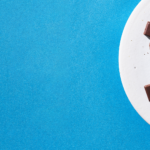Bildnachweis: scharfsinn86 – stock.adobe.com, Copyright Photo: Südzucker AG.
The concept of an environmentally conscious transformation in line with a modern bioeconomy is something that the Südzucker Group consistently promotes. Südzucker sees itself as “more than just sugar”. Alongside this traditional segment, the company is also actively involved in functional food ingredients, refrigerated and frozen pizza, portion packs, ethanol, starch, and fruit juice concentrates and preparations. What these products have in common is that they are based on processing agricultural raw materials. The company’s strategy slogan is an apt one: “Get the power of plants”.
Getting more out of the field
So how is the company responding to the increasingly limited space for crucial agricultural cultivation? It has concluded that fields can do more. Not every plant that is harvested has the quality to be processed into food. This means that valuable by-products are generated during the production of food and feed, which can be used for other applications such as generating energy.
In light of climate change, the use of fossil fuels needs to be reduced in favour of renewable raw materials. With this in mind, Südzucker AG joined the Renewable Carbon Initiative (RCI) in July 2022. This initiative, established by nova-Institute, now has over 40 members, including companies and institutions from right across the value chain. By becoming a member itself, Südzucker aims to strengthen its commitment to supporting an accelerated transition away from the use of fossil carbon to renewable carbon from biomass, carbon dioxide and recycling. The company no longer sees itself as a traditional raw material supplier; instead, it is looking to move further forward in the value chain. One of the commitments set out in Südzucker AG’s Strategy 2026 PLUS corporate strategy is to place a stronger focus on technology- and market-driven value creation from plant-based materials.

Using bio-based chemicals
The use of bio-based chemicals holds great potential for Südzucker. The company already makes use of all parts of the plants it processes, whether for food and feed production or for other products. This is where the production of bio-based chemicals for new solutions comes into play. For example, biomass growing in fields can be used as a sustainable carbon source. The Mannheim-based company CropEnergies, a subsidiary of Südzucker AG, is already testing the approach of producing basic chemicals from ethanol, mainly obtained from feed-quality grain. At the moment, most of these chemicals are still based on crude oil.
To further this initiative, CropEnergies plans to build a plant at the Zeitz chemical and industrial park in Elsteraue, Germany, which will produce renewable ethyl acetate from sustainable ethanol. The company expects the total investment for the new production plant to run up to EUR 130 million. Work on the new plant is scheduled to start in early 2024 and it is due to become operation by no later than summer 2025. The new production facility will be the first of its kind in Europe and is expected to produce 50,000 tonnes of renewable ethyl acetate per year from renewable energy sources. In addition to ethyl acetate, the plant will also produce renewable hydrogen as a co-product. Together with biogenic CO2 from CropEnergies’ fermentation process, this could form the basis for further conversion of renewable energy in Power-to-X (PtX) follow-up processes, such as producing eFuels.
Back in the summer of 2022, CropEnergies had already reported on its participation in several start-ups as a means of positioning itself in sustainable market segments, such as the production of renewable ethanol from waste and residues, tsolar power generation and other bioenergy projects. All of these activities align with the theme of “bio-based chemicals” in the Südzucker Group’s Strategy 2026 PLUS.
More than just food
However, the focus on sustainability is not limited to making food more sustainable; it also extends to the packaging in which food is transported and sold. Two years ago, the Südzucker Group responded to the funding call from the German Federal Ministry of Food and Agriculture (BMEL) for “bio-based plastic packaging for food”, aiming to develop ideas to improve the use of bio-based plastics in the food industry. Four different research approaches emerged from this call, which are now being funded by the BMEL through its project sponsor, the Agency for Renewable Resources (Fachagentur Nachwachsende Rohstoffe e. V., FNR).
Südzucker, together with its subsidiaries, is helping to drive forward various projects, such as bio-based films for freezing. Südzucker is addressing this issue as part of the FNR-funded BioPrima project, a research scheme for the production of bio-based primary films used as a shrink-wrap solution for protecting frozen pizzas. The goal is to develop a new form of primary packaging with specific requirements for frozen pizzas, using the highest possible proportion of renewable, starch-based raw materials to minimise the fossil component. The use of AGENACOMP, a starch-based plastic produced by the Austrian subsidiary AGRANA Beteiligungs-AG, is intended to accelerate the biodegradability of the packaging, making it home-compostable. The recyclability of the film is also taken into account.

In addition to the FNR-funded project, Südzucker AG is involved in another bioplastic project in Straubing, which is funded by the Bavarian State Ministry of Economic Affairs, Regional Development and Energy. Small bags for holding loose fruit and vegetables, previously made entirely from fossil-based raw materials, are being switched to ones made primarily from renewable raw materials such as starch in several supermarkets in the region. These bags are biodegradable and home-compostable and can be disposed of as bio-waste during the several-month trial period.
Sustainability-linked bond
The concept of sustainability is also reflected in Südzucker AG’s corporate financing. In October 2022, the Group placed its first sustainability-linked bond under the new “Sustainability-Linked Financing Framework” through its Dutch subsidiary Südzucker International Finance B.V. The bond has a volume of EUR 400 million, a term of five years and a coupon of 5.125%.
In conclusion, Südzucker AG, together with its subsidiaries, has completed the turnaround from being a pure raw material supplier to becoming a manufacturer and user of bio-based raw materials in line with the circular economy. The company has evolved from a pure raw material supplier and sugar producer to serving additional industrial segments with its subsidiaries. Ultimately, this forward-thinking strategy can benefit both investors and shareholders.
This article was published in the current Plattform Life Sciences issue „Circular Bioeconomy 4_23“, which you can view as an e-magazine via the following link:
https://www.goingpublic.de/wp-content/uploads/epaper/epaper-Life-Sciences-4-2023/#54
Autor/Autorin
Die Redaktion der Kapitalmarkt Plattform GoingPublic (Magazin, www.goingpublic.de, LinkedIn Kanal, Events) widmet sich seit Dezember 1997 den aktuellen Trends rund um die Finanzierung über die Börse. Ob Börsengang (GoingPublic) oder die vielfältigen Herausforderungen für börsennotierte Unternehmen (Being Public), präsentiert sich GoingPublic cross-medial als Kapitalmarktplattform für Emittenten und Investment Professionals.






